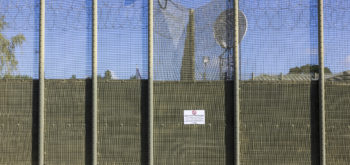The incoming interim chair of the miscarriage of justice watchdog has described the leadership at the troubled organization as ‘arrogant’ and ‘dismissive’. Dame Vera Baird KC told the the BBC Radio Four‘s Today program this morning that the Criminal Cases Review Commission (CCRC) was ‘almost looking for reasons not to refer’ in an blunt interview in which she promised to ‘root out’ the ‘negative’ culture.
As reported on the Justice Gap this morning, the barrister and former victims’ commissioner starts work on Monday taking over from the previous chair, Helen Pitcher who resigned in the wake of the furore over its mishandling of the Andrew Malkinson case. The influential House of Commons justice select committee has called for the chief executive, Karen Kneller to step down in wake of her evidence given in a bruising encounter with MP’s last month – see our interview with the committee chair Andy Slaughter. Baird said that she planned to meet Kneller ‘as soon as I possibly can’. ‘I start work on Monday and today I propose to write to her and ask her to meet at their premises in Birmingham,’ she told Justin Webb.
It will be a rare visit for Karen Kneller who told the justice committee last month that she only comes into its head office one or two days every two months as a result of the commission’s controversial remote working policy. The former New Labour solicitor general said that she had reviewed four previous inquiries into the performance of the CCRC – two by the justice committee in 2015 in 2019, the 2021 Westminster Commission on Miscarriages of Justice and Chris Henley’s review of the Malkinson case from last year. ‘All of them show very much the same problems: the CCRC seems incapable of learning from their mistakes. They are negative. They don’t engage with applicants. There is often a lack of understanding. They need to be bold. They need to be mission-driven.’
‘All four of these inquiries point to the fact that they operate on their own in some quite, arrogant dismissive way, often not understanding and almost looking for reasons not to refer to the court of appeal.’
Dame Vera Baird
Vera Baird will be overseeing a review of the CCRC and has already received terms of reference from the Lord Chancellor Shabana Mahmood. ‘It must be urgent and it must be comprehensive – covering internal governance, leadership, operational effectiveness, and how it performs it statutory functions,’ she said. ‘At the same time I do that, I have to lead it, setting its a direction in line with its core purpose. This is a hugely important organization for a criminal justice system. Miscarriages of justice desolate the lives of the wrongly accused and they make the public less safe.’
The Labour peer took issue with Karen Kneller’s assertion that the problems identified in relation to its handling of the Malkinson case were limited to that one case. Instead, Dame Vera argued that the ‘negative, dismissive’ approach in the cases of Peter Sullivan, Victor Nealon and Andrew Malkinson was ‘indicative of a culture which inevitably must underpin the approach to other cases’. ‘That just stems from what we know at the moment about the cases that have been catastrophically badly handled. I think as we dig a little deeper – and as I talk to people who tried to get cases referred – we might find more. I intend to root out the culture that has caused these completely – lock stock and barrel – whatever it takes. And meanwhile to run it in a way that I hope will capture recapture public support.’
She also said that she hoped it would recapture the support of the Court of Appeal who have been ‘very critical’. She argued that criticisms from Appeal judges had ‘damaged its confidence’ and it was not sufficiently ‘bold’ in standing up to the CCRC. ‘If you’re not challenging the Court of Appeal when it’s turned down appeals already and you feel that the test is met, you’re not doing your job properly. Inevitably, there’ll be times when the Court of Appeal doesn’t agree with you. The whole point of the CCRC is to be totally independent of government and totally independent of the Court of Appeal. It must do its job. I hope I can assure that before very long it will be doing it far better than it currently is.’







